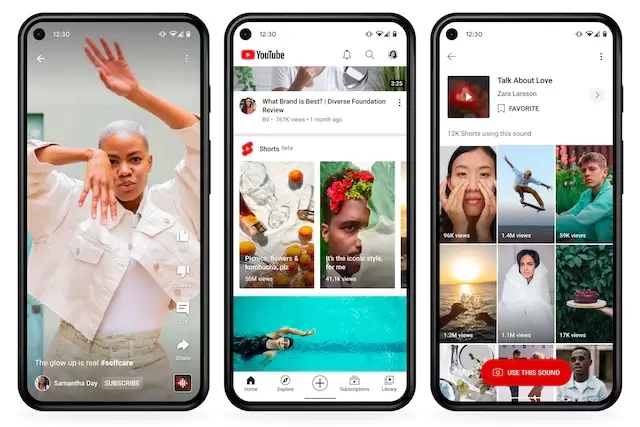But what Exactly are 4G Networks?
 No problem. Just whip out your smartphone, which will bail you out of this sticky situation by providing detailed, interactive maps. The idea of phone calls ringing in my pants pocket while I was out fishing or camping was positively horrifying. You can read about the basics of cell phone technology in How Cell Phones Work and How Smartphones Work. I ignored the catcalls and kept the phone for six long years; it was still working just fine when another friend forcibly dragged me to a shop and made me buy a shiny blue flip phone with fancy texting features.This was the beginning of the end of my stubborn resistance to cell phone culture. Instead, networks everywhere are still a hodgepodge of 3G and 4G, and even 2G technologies and air interfaces. We'll touch on newer 4G air interfaces later. In a sense, says Wojtek Felendzer, technical solutions marketing manager at Nokia Siemens Networks, these systems are the biggest machines that humankind has ever built, stretching from coast to coast and across the world. For example, they're better equipped to deal with unexpected congestion caused by random world events, such as traffic jams. This was cre ated by GSA Content Generator D emoversi on!
No problem. Just whip out your smartphone, which will bail you out of this sticky situation by providing detailed, interactive maps. The idea of phone calls ringing in my pants pocket while I was out fishing or camping was positively horrifying. You can read about the basics of cell phone technology in How Cell Phones Work and How Smartphones Work. I ignored the catcalls and kept the phone for six long years; it was still working just fine when another friend forcibly dragged me to a shop and made me buy a shiny blue flip phone with fancy texting features.This was the beginning of the end of my stubborn resistance to cell phone culture. Instead, networks everywhere are still a hodgepodge of 3G and 4G, and even 2G technologies and air interfaces. We'll touch on newer 4G air interfaces later. In a sense, says Wojtek Felendzer, technical solutions marketing manager at Nokia Siemens Networks, these systems are the biggest machines that humankind has ever built, stretching from coast to coast and across the world. For example, they're better equipped to deal with unexpected congestion caused by random world events, such as traffic jams. This was cre ated by GSA Content Generator D emoversi on!
It sports higher data rates, so that multimedia applications such as video calling or YouTube clips work more smoothly. 3G needed more oomph. This idea of IP-based wireless is just one factor that defines 4G. On the next page you'll see that a lot more ingredients go into the recipe that makes for tasty 4G performance. On the next page you'll see how 4G is different from its wireless forebears, and then delve into the details of what makes it so much faster than the first 3G systems. No matter how convoluted the acronyms, what it always boils down to is this -- wireless networks are radio systems. 3G systems. LTE is not. LTE is considered a good long-term option because it's easier to scale up for greater capacity and performance. A network that qualifies as real-time speed has a latency of 50ms (milliseconds) or less; 4G LTE has a latency of only around 20 to 40ms. Low latency also means voice calls don't have any lag or echo, echo, echo. Po st w as created by GSA Conte nt Generator DEMO.
What makes them different from old-school 2G networks, which primarily worked for voice calls? Once a carrier has the spectrum, it can begin upgrading subnets of its networks, piece by piece. And the current generation of 3G (third-generation) networks, while speedy, often can't provide a dependable mobile Internet experience. It's just an evolution that vastly improves upon the 3G Internet experience. Like 3G, 4G networks are IP-based (Internet protocol), meaning that it uses a standard communications protocol to send and receive data in packets. The answers aren't always as clear cut as we'd like them to be. With LTE, devices can transmit and receive simultaneously because they use different frequencies for these tasks. Not all frequencies are equal, though. In this bloodthirsty, cutthroat industry, carriers are desperate to lure subscribers. Other than capital for building infrastructure, spectrum is the single most vital resource for carriers. 4G is more spectrally efficient than 3G. Think of radio spectrum as a pipe of a certain diameter; only so much data can go through that pipe at one time.
It's the fact that these devices are now wildly powerful, pocket-sized computers that can serve up critical (or just trivial) information of every kind no matter where you happen to be. Mobile devices with advanced and data-hungry capabilities exploded in numbers. That's why he says that if a large number of mobile users are able to see download speeds between 10 to 20Mbps in the next couple of years, it will be a significant accomplishment. In fact, "People in this industry sometimes say that nothing new has been invented in the past 100 years," said Felendzer. You've already reached your data limit; plus, there are so many people at the mall that the system is slow. When thousands of people are suddenly stuck on a highway, they start using their phones, which causes a major spike in demand for data services in that area. Bensinger, Ben. "Fast Phones, Dead Batteries." The Wall Street Journal. Of course, that's all provided that your battery isn't dead. No matter which wireless technology might dominate your part of the world, you have something in common with the rest of the planet - you're part of the wireless explosion. Speed improvement is the factor that you might care about most.

Post a Comment for "But what Exactly are 4G Networks?"